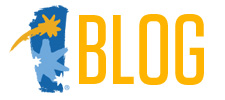Making that transition from college to career means major culture shock for many students. You have to pay for housing, a vehicle, insurance, a work appropriate wardrobe, the list goes on and on – and on top of that, you have to start paying back your student loans!
Check out these ways to prepare for the financial responsibilities that you’ll encounter after graduation:
Set Up Direct Deposit.
Once you get hired to your first first-time job, now you have to decide how to direct your checks. With direct deposit, you can have some money go straight to your checking account to pay your monthly expenses, and then plan for some to be funneled directly to your savings account, retirement account, and/or investment accounts. This turns out to be a great way to save because after a while, you “forget” that this money is being withdrawn. Savings Accounts to help reach your goals:
- Vacation Savings Accounts earn interest on balances $25 or more and receive your total savings anytime you choose so you can travel with your family guilt-free.
- Holiday Savings Accounts earn interest on balances $25 or more and receive your total savings in October.
- For Emergency Savings, try to aim for between three to six months of living expenses, then make any adjustments based on your risk tolerance.
- Retirement savings like Traditional and Roth IRAs are perfect for building tax-deferred* savings for your future.
Monitor your accounts.
Mobile banking allows you to check your account balance regularly especially if you opt-in to “instance balance.” Then you don’t even have to log in to see what’s in your account. Overdraft fees can be brutal and can spiral into several and before you know it you have several hundred dollars in overdraft fees. Also, don’t count on your debit card being declined if you don’t have enough money in your account to cover the purchase. That is how the overdraft avalanche begins. >> View Overdraft Protection Options
Use credit cards wisely.
If you choose to use a credit card, get one with an interest rate that is as low as possible. Avoid any cards with annual fees and keep your limit low—at least enough to cover emergencies if you get in a pinch. Use it wisely, for true emergencies and don’t go over your limit. Also, when you get your bill, pay it on time. Paying your card late will pile on the late fees. >> Read How to Lose Control of Your Credit in 10 Ways
Consolidate your student loans.
Yes, you can consolidate your student loans while you are still in college. Doing so will usually give you a lower payment and a lower interest rate. Refinancing your student loans will also help you get a jump on some of the financial responsibilities that you will be facing after graduation. By getting a handle on your student loans now you will be ahead of the game and can pay your loans off faster.
Analyze your spending habits.
If you really want to get a handle on your finances you need to know where you are spending your money. For a month, document every instance that you spend money, whether you are paying a bill, buying dinner, or getting a pack of gum. At the end of the month take a look at where your money is going. You will see distinct patterns in your spending habits and this will allow you to make necessary adjustments so that you can save.
Make a budget (and stick to it).
Once you know where your money is going you need to take control of it and create a budget. Write down what you bring in each month and what you have to pay out. Figure in everything, allotting a certain amount for savings. Keep it flexible but try to stick to it as closely as you can each month. You will be amazed at how much you can save when you hold yourself accountable with a budget.
Utilize the CO-OP Network.
No matter where you end up after college, you’ll still have access to your credit union accounts with access to nearly 30,000 free CO-OP ATMs and 5,000 Shared Branches. The CO-OP ATM network means you’re never far from your money when you need it. Find one near you by downloading the locator apps.
Be socially conscious.
We live in an oversharing society, which makes it very easy for cyber thieves to steal your identity and your cash. Be careful what you divulge about yourself online and refrain from posting photos that may portray sensitive information like your debit or credit card, license or banking information. ID Protect is the credit union’s way to protect you from identity theft. >> Learn more about these benefits
Know your Credit Score.
This number is your financial life force. The better your score, the more money you save. Taking the time to familiarize yourself with how credit scores are calculated is the first step in getting a strong score. And now we’ve made it easier to monitor your credit score AND credit report by offering 24/7 access to them FOR FREE when you log into Online Banking and our Mobile Banking App.
Landing your first job allows you to create the foundation for a successful career. By honing your money management skills and saving wisely, you’ll be able to build on that foundation and prepare for the future. If you find yourself in a situation where you need a financial advisor to go over your options, the credit union is a great place to start. Since we’re a not-for-profit financial cooperative, our Member Services team has your best interest in mind. You’ve got this!




